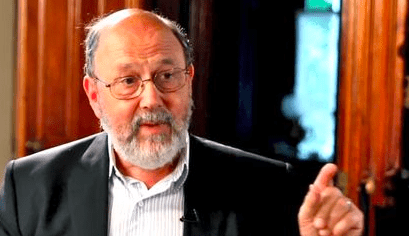 Purgatory is a Roman Catholic doctrine, and many Protestants say things about purgatory that are out of line with what Catholics believe, so let me cite the Catechism of the Catholic Church:
Purgatory is a Roman Catholic doctrine, and many Protestants say things about purgatory that are out of line with what Catholics believe, so let me cite the Catechism of the Catholic Church:
1030 All who die in God’s grace and friendship, but still imperfectly purified, are indeed assured of their eternal salvation; but after death they undergo purification, so as to achieve the holiness necessary to enter the joy of heaven.
1031 The Church gives the name Purgatory to this final purification of the elect, which is entirely different from the punishment of the damned. The Church formulated her doctrine of faith on Purgatory especially at the Councils of Florence and Trent. the tradition of the Church, by reference to certain texts of Scripture, speaks of a cleansing fire:
As for certain lesser faults, we must believe that, before the Final Judgment, there is a purifying fire. He who is truth says that whoever utters blasphemy against the Holy Spirit will be pardoned neither in this age nor in the age to come. From this sentence we understand that certain offenses can be forgiven in this age, but certain others in the age to come.
1032 This teaching is also based on the practice of prayer for the dead, already mentioned in Sacred Scripture: “Therefore Judas Maccabeus] made atonement for the dead, that they might be delivered from their sin.” From the beginning the Church has honored the memory of the dead and offered prayers in suffrage for them, above all the Eucharistic sacrifice, so that, thus purified, they may attain the beatific vision of God. The Church also commends almsgiving, indulgences, and works of penance undertaken on behalf of the dead:
Let us help and commemorate them. If Job’s sons were purified by their father’s sacrifice, why would we doubt that our offerings for the dead bring them some consolation? Let us not hesitate to help those who have died and to offer our prayers for them.
Notice that purgatory is (1) for saints only, and that means it is not about a “second chance” or a postmortem opportunity to hear and respond positively to the gospel, and (2) is a purgation of sins so that the Christian will be completely holy and pure and fit for the presence of God.
What do you think? Purgatory or not? Why do we need this doctrine? Does it threaten the gospel?
Is the doctrine justifiable for Christian theology? This depends on how you do theology. If you argue on the basis of the Bible, which Tony Thiselton does in Life after Death, there is no solid biblical ground. If you do theology by aligning with a church tradition, which is the case with the Roman Catholic tradition, then it is justifiable.
Thiselton sketches views well — from Aquinas to the Reformers to Moltmann — and he shows that Aquinas saw it as assisting the atoning work of Christ and supplementing the satisfaction which was not yet completed (129-130), while many Prots think this diminishes the sufficiency of the work of Christ (and I agree). 1 Cor 3:11-15 isn’t helpful here.
At work here are two factors: (1) that holiness is a gift, ready-made and complete, at the resurrection and (2) that eternity and time create issues for how purgatory is understood. [Thiselton has a lengthy, and interesting, discussion of eternity but he doesn’t make clear — almost like he forgot to tie it back — how his view of time and eternity,which is one of multi-dimensions, impacts one’s view of purgatory.
Here is a huge counter to typical thinking: “It is a profound mistake to equate holiness with good moral character, even if it includes this” (132). Thiselton works with O.R. Jones on seeing holiness as God and our encounter with God that is transformative. It becomes dispositional: we become people who want to behave in a way that fits with the divine presence.
So he argues that there is nothing prima facie wrong with thinking that at the resurrection the saints will be totally transformed so that we always freely choose to be holy and contemplate God. Thiselton’s view of heaven is a bit too ethereal and needs to be tied more to the new heavens and new earth.
The big thing for him here is that this occurs within God’s sense of time and of post-resurrection time and not our time, and this ties to purgatory, but it is unclear to me just how. Time, then, is comprehended in theology in four ways: as timelessness (Paul Helm), as everlastingness (Duns Scotus), as simultaneous possession of the illimitable life (Boethius) and, then, fourth, as multi-dimensional (David Wilkinson). God is both eternal and temporal, time is part of eternity, etc. God’s time transcends our time.















